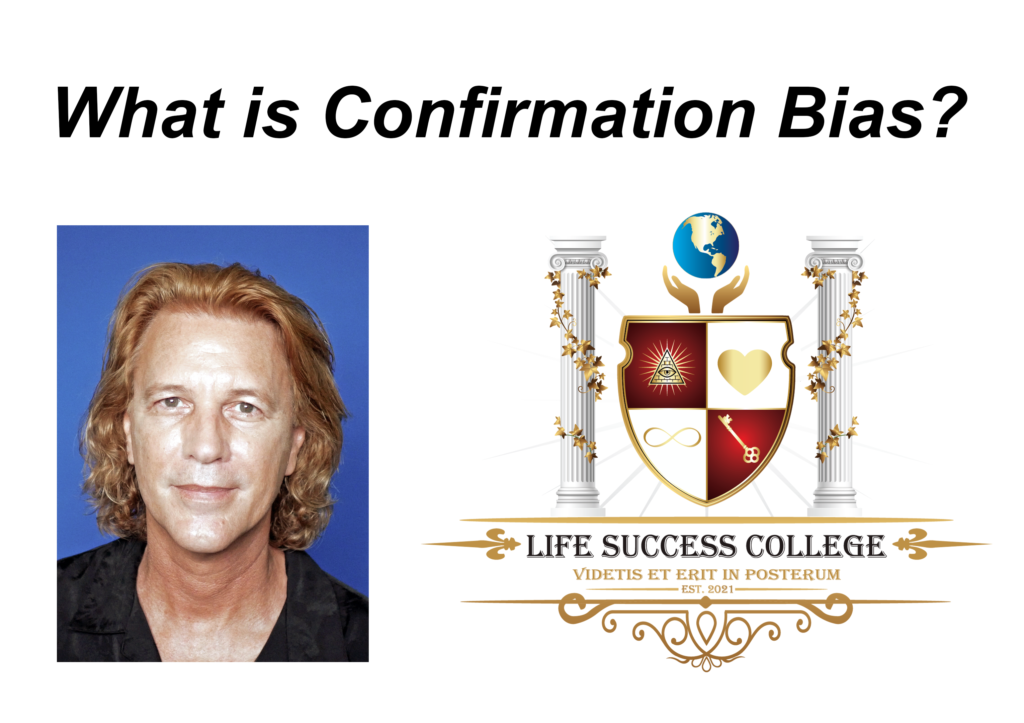Confirmation bias is the process of selective thinking that searches or looks for information consistent with what we already believe and ignores or avoids information or data that contradicts those beliefs, values, or standards. This lets you operate or function by letting you see only what you want to see, or to have you believe only what you want to believe.
With confirmation bias, you are not seeking out objective facts – you just want to be right! So, you use information or facts that support your views or narrative and discard or conveniently overlook what would expose your confirmation bias. It’s like a one-way interpretation of the facts without honestly looking at or weighing or considering all the information; only keeping or acknowledging the parts that work out in your favor, while overlooking the facts that don’t work out in your favor. It is being deceitful without being consciously aware of it. All this while perceiving yourself as a fair, rational, balanced, and unbiased person.
Unconscious confirmation bias can lead us to make unwise decisions and have a distorted view of reality. There are many reasons for this: people don’t want to be proven wrong or admit mistakes, or to be corrected. This protection shields their self-esteem from any potential damage if questioned. Some people believe that they know more or are more knowledgeable than they may appear to be at times. So, this would expose their estimate of their level of intelligence, and to avoid that embarrassment or humiliation – if this happens, then confirmation bias will apply itself. It will absorb that shock through ignorance or lack of awareness without the person consciously knowing, therefore, saving face based on erroneous or inaccurate facts that are based off of preconceived opinions or beliefs.
Confirmation bias exists, it is real, and it is out there and it is being used on you and maybe by you. Now that you are more aware of it, you can proceed knowing what is going on behind the scenes in certain instances and situations.

